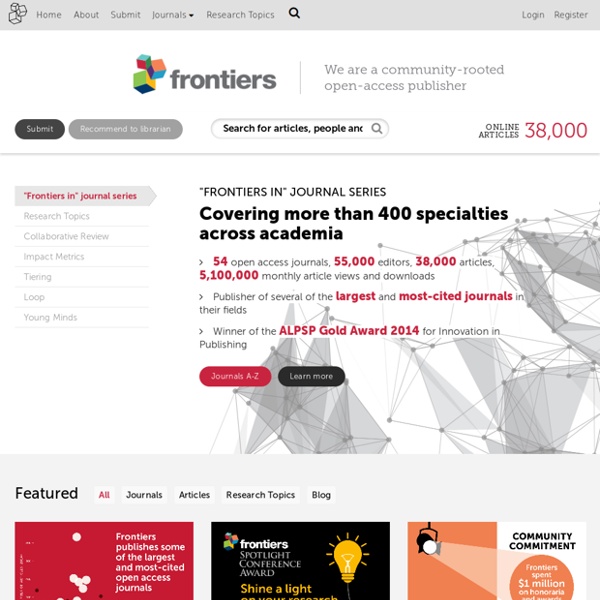



Altered auditory and multisensory temporal processing in autism spectrum disorders Leslie D. Kwakye1,2, Jennifer H. Foss-Feig3, Carissa J. Cascio2,3,4,5, Wendy L. Online Genetics Education Resources Online Genetics Education Resources Access Excellencewww.accessexcellence.org A series of learning modules on multiple science and health topics, including biotech and genetics. Sponsored by the National Health Museum, a non-profit organization founded by former U.S. Surgeon General C. In your eyes only: deficits in executive functioning after frontal TMS reflect in eye movements Mathias Lüthi1,2, Katharina Henke2,3, Klemens Gutbrod1,2, Thomas Nyffeler1,2,4, Silvia Chaves1,2 and
Why the Diagnosis of Attention Deficit Hyperactivity Disorder Matters 1Child and Adolescent Psychiatry Division, Department of Psychiatry, University of Iowa Carver College of Medicine, Iowa City, IA, USA 2Neuroscience Program, Pappajohn Biomedical Institute, University of Iowa, Iowa City, IA, USA Background: Attention Deficit Hyperactivity disorder (ADHD) is one of the most common and challenging childhood neurobehavioral disorders. ADHD is known to negatively impact children, their families, and their community. About one-third to one-half of patients with ADHD will have persistent symptoms into adulthood. The prevalence in the United States is estimated at 5–11%, representing 6.4 million children nationwide.
Cognitive Representation of Human Action: Theory, Applications, and Perspectives Introduction Motor activities within particular environmental conditions are central dimensions of biological organism since millions of years. Important stages in evolution are mainly based on the establishment of new functional links between the motor system, related memory structures, and the perception of biological systems. Furthermore, motor actions – such as dance or sports – have always been an important element in all human cultures. Stated in a more dramatic language: “from the motor chauvinist’s point of view the entire purpose of the human brain is to produce movement … [and] all sensory and cognitive processes may be viewed as inputs that determine future motor outputs” [Ref. (1), p. 487].
Update on the implication of potassium channels in autism: K+ channelautism spectrum disorder Introduction Nearly 70 million people worldwide suffer from ASD. 700,000 are from USA and the estimated cost to society of caring for these children has been $11.5 billion in 2011 (Lavelle et al., 2014). ASD is a group of heterogeneous neurodevelopmental disorders previously dealt with as single pathologies: autistic disorder, pervasive developmental disorder-not otherwise specified (PDD-NOS), Asperger syndrome, childhood disintegrative disorder also known as Heller syndrome, and Rett syndrome. The relative risk for a child to develop the disease is increased ~25-fold in families in which a sibling is affected (Jorde et al., 1991). Unfortunately, the genetic etiology of autism is characterized by high locus heterogeneity, where de novo and rare inherited CNVs and SNV mutations in conjunction contribute to the overall genetic risk to develop the disease.
Multimodal Diffusion-MRI and MEG Assessment of Auditory and Language System Development in Autism Spectrum Disorder Introduction The etiology or, indeed, etiologies of autism spectrum disorder (ASD) is currently unknown. It is hypothesized that alterations to brain structure and function contribute to the clinical symptoms common to ASD. Given the high rate of occurrence of communication and language impairments in ASD, research has focused on the brain regions associated with basic auditory processes and more complex language skills, with prior imaging studies showing alterations in temporal lobe structure, connectivity and function (Klin et al., 2002; Boddaert et al., 2004; Redcay and Courchesne, 2005; Lee et al., 2007; Lange et al., 2010; Schipul et al., 2011; Nickl-Jockschat et al., 2012; Roberts et al., 2013). To investigate associations between structure and function within auditory and language systems in ASD, the present study integrated diffusion magnetic resonance imaging (dMRI) measures of white-matter microstructure with magnetoencephalography (MEG) measures of cortical neural dynamics.
Regulating Critical Period Plasticity: Insight from the Visual System to Fear Circuitry for Therapeutic Interventions Introduction As the brain develops, particular regions undergo different critical periods of plasticity when their underlying circuits gain heighted sensitivity to experience (1, 2). Experience during these early temporal periods has a profound effect on the wiring of skills and behaviors, such as language, music playing, visual processing, and emotional processing. When the critical period for a region closes, the adaptations in its circuitry become fixed, locking in adjusted ways of processing and responding to stimuli and bringing plasticity into a latent state. This mechanism is normally a beneficial way to retain optimized behaviors without need for maintenance or renewal. However, in individuals exposed to inappropriate stimuli, adaptive changes that were helpful during this window of developmental plasticity may not be beneficial in the future and can lead to dysfunctional behavior.